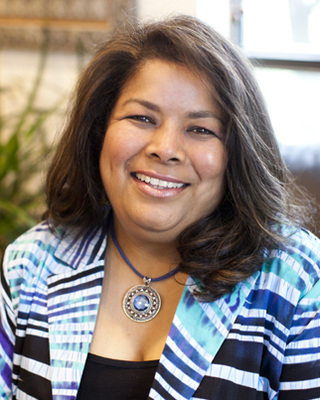Editor’s Note: Strong relationships are at the core of a happy life, but sometimes, dealing with the people in our lives is tricky. That’s why Thrive Global partnered with The Gottman Institute on this advice column, Asking for a Friend. Every week, Gottman’s relationship experts will answer your most pressing questions about navigating relationships—with romantic partners, family members, coworkers, friends, and more. Have a question? Send it to [email protected]!
Q: I’ve dated my boyfriend for over a year now. He’s Filipino, and I’m white. This doesn’t pose many issues within our relationship, but it’s a bit awkward when I try to engage with his family because they often speak Tagalog, which makes it difficult for me to understand the conversation and keep up. Also, my dietary restrictions don’t allow me to eat a lot of the Filipino food they offer (I’m vegetarian and gluten-free), so I often have to refuse food they offer me. How do I integrate myself respectfully into a family with a different language, foods, and culture than I’m familiar with?
A: John Gottman often says that “every relationship is a cross-cultural experience” because even if partners grow up next door to each other, the environment, norms, and behaviors inside each home create a unique culture. Now imagine how diverse relationships are when partners grow up worlds apart.
I am a native of India and I married a white American man 30 years ago. My husband was the one who had to adapt to Indian food and deal with my relatives talking in my native tongue and forgetting to include him. While I had some adjustments to make to his culture as well, the fact that I spoke English fluently and knew many American customs from living here had a significant influence on my ability to fit into his cultural environment.
Within intercultural relationships, there is a continuum of cultural differences where some cultures are far apart on the scale while others are a lot closer together. When there is some overlap between the unique cultural backgrounds of the two partners, it’s a lot easier to navigate and negotiate around values, norms, and behaviors that don’t overlap. There is often a feeling of compatibility and commonality that makes up for the areas that feel disparate.
Many people of your generation are meeting, falling in love, and connecting with people from different backgrounds because of globalization and the intermixing of many cultures in our society. No doubt the gap in cultural differences between the two of you is quite wide because Filipino and white American cultures don’t overlap in obvious ways in terms of food, language, interactional rules, and social mores.
This width between the two cultures is not a barrier when the two of you are dating and living by yourselves because both of you have a shared American culture with its common language of English, foods, habits, and other understandings that smoothes the way. I would encourage you to take a step back from the challenges and remember this so that you don’t get too focused on the difficult parts when you are with his family or cultural group.
Intercultural and interracial relationships have a level of complexity and hardship that needs to be taken into account in how the two of you communicate, negotiate, and arrive at shared understandings both in your own home as well as when visiting each of your families. In the Gottman Method, this aspect of the relationship is called shared meaning.
To develop strong shared meaning in a relationship takes thoughtful and consistent mutual self disclosure of values, meanings, dreams, and rituals. As an intercultural couple, you need to invest an extra amount of attention and effort not only in the beginning, but throughout your life together to strengthen your bond of understanding and attunement, precisely because you will be faced with situations where you will each need to adapt to circumstances you cannot control or step up and protect each other from being hurt.
So plan a regular time each week when the two of you shares stories, memories, and your personal worldviews with each other. You might consider using the Love Maps and Open Ended Questions cards from the Gottman Card Decks app as a starting point. Researcher Arthur Aron’s 36 questions for building intimacy or the TableTopics card decks are other options.
In terms of the specific situation regarding visiting your boyfriend’s family and your challenges in that context, here are some tips to think about.
Prior to a visit with his family, have a conversation with your boyfriend about your experiences, expectations, and needs.
It almost always works better to share your thoughts and ask for what you need (not what you don’t need) before you are in the middle of a tense or awkward situation. Encourage your boyfriend to think of himself as the cultural tour guide while in his family home. He needs to be mindful of times when you are left out and translate for you or ask his family to speak in English (if they know how). He can also talk to his mom prior to your arrival and let her know about your diet and help her not take it personally that you are refusing their food. You are not in a position of influence in that familial context, but he is — and he can stand up for you.
Make finding Filipino recipes you can eat a fun activity with your boyfriend.
Try them at home first and make sure you enjoy them. This might encourage him to learn how to cook them for you (hint hint). Once you have identified a few recipes, work with your boyfriend to strategize how to make sure there is food you can eat at his family home. Either he can give the recipes to his mom and request that she make them for you, or the two of you can cook a dish or two and take it with you. Asian cultural norms might be relevant here in terms of how his mom might perceive you bringing your food, so make sure to work closely with your boyfriend to avoid inadvertently offending his family.
When you are in his family’s presence and they are talking in Tagalog, consider saying something like, “Please repeat in English for me” or, “This seems like a fun conversation. What are you discussing?”
This last tip is a bit challenging. Your boyfriend is your best advocate for this situation, but if he is not in the room or doesn’t notice the shift to a native tongue, you can gently remind them of your presence. Once you have done this a few times, they will probably become more mindful of what they are saying in front of you. Assume they are good hosts and want you to feel welcome in their home, so knowing how to make YOU comfortable might be helpful to them also.
The two of you are celebrating and integrating diversity into your lives and that will make you both grow and learn so much about each other’s cultures. This is one of the special opportunities we have in living in America. You are part of a growing population of mixed culture couples, so finding other mixed-culture couples and sharing challenges and strategies might help you feel less alone in your shared journey.
Follow us on Facebook and sign up for our weekly newsletter for all the latest news on how you can keep Thriving.
More from Asking for a Friend here.


